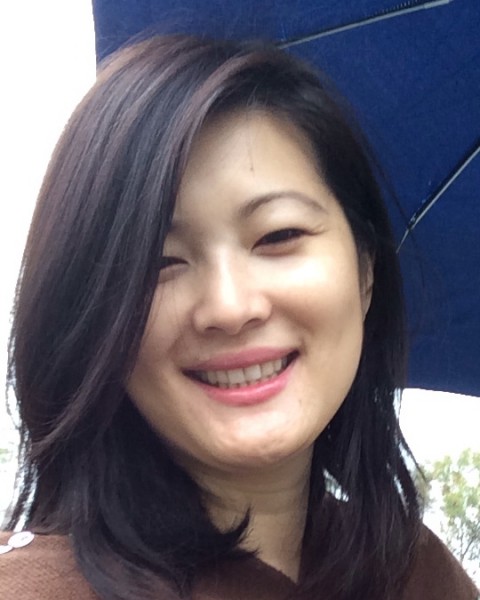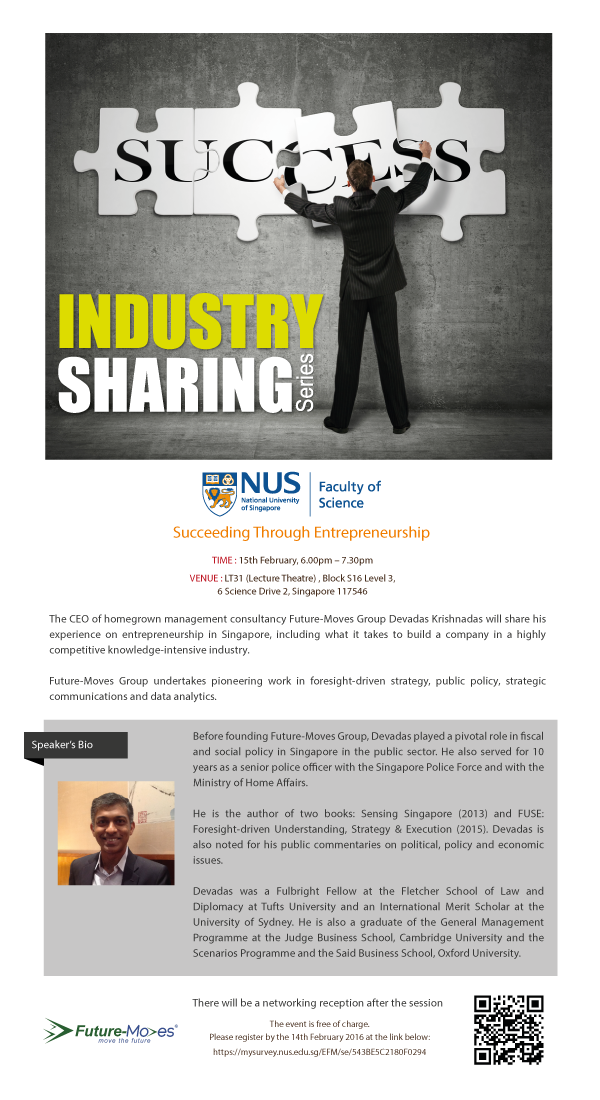
(Interview conducted by Department of English Language & Literature undergraduate, Nigel Choo)
Mei Fong graduated from NUS with a Bachelors of Arts (Hons.) in English Literature in 1997. She began her career as a journalist at The New Paper, then pursued a Masters in International Affairs at Columbia University before joining the Wall Street Journal as a correspondent in 2001. Her work as a correspondent at the Journal won her various accolades including a shared Pulitzer for her stories on China’s transformation ahead of the 2008 Beijing Olympics. After leaving the China bureau, she was on faculty at University of Southern California’s Annenberg School of Communications and is currently a fellow at the thinktank New America. Mei Fong was recently in town in December to promote her new book “One Child,” an account of China’s failed attempt at social engineering and its pervasive effects on the Chinese people.
Q: How did your undergraduate education in NUS influence you as a writer or journalist?
I think the honours year really helped me blossom as a writer by teaching me to read and write critically, and not just on Shakespeare or Joyce but also on popular culture. There was a great class Tim White taught on film critique I enjoyed immensely, and I also remember classes by professors Barnard White, Yong LiLan, Robbie Goh and Susan Ang vividly. Professors Goh and Ang in particular were influential because they encouraged my admittedly middle-brow tastes by lending me books on everything from science-fiction to Umberto Eco’s piece on James Bond. I knew I neither had the ability nor interest to write an epic canto, but their encouragement and examples showed me that it was possible–and indeed, necessary, to write intelligently about anything, even so-called “fluffy” topics.
Q: You have come a long way from being the 16-year old who was inspired by a meeting with Queen Elizabeth II to become a journalist and writer. Has there been a defining moment in your career thus far that you could share with us?
Lots of them! One was getting into a program to encourage creative writing that was sponsored by the Ministry of Education, when I was at Raffles Junior College. The program paired us up with mentors, and my mentor was the neurosurgeon and writer Gopal Baratham, who was a kindly influence. Gopal used to invite us mentees to the Tanglin Club for tea, and was generous about introducing us to the movers and shakers of Singaporean literary society. Imagine being a scrubby teenager and meeting folks like David Marshall and Catherine Lim. All these encounters inspired me, made me think there’s more to life than a 9-9 existence as an office peon.

Q: What inspired the writing of “One Child”?
I’d been reporting on China for several years, and the one-child policy was one of the most interesting and fascinating policies that really shaped Chinese society. At first, as a city dweller, it seemed as if the policy really only affected those in rural areas, who were more subject to its excesses, like forced abortions and sterilizations. Such things didn’t happen to educated women in cities. But over time, I came to realize it really shaped a lot of things for everyday Chinese, things like who you date, the jobs you choose, and how you die. But the key for me came when I was reporting on the 2008 Sichuan earthquake, China’s biggest natural disaster in three decades. A lot of the children killed in the earthquake were only children, because the area near the earthquake’s epicenter had actually been a test pilot program for the one-child policy, before they launched it nationwide in 1980. Because of the coming Olympics, Beijing moved in ruthlessly to suppress dissent and parental concerns over the nature of these deaths–many in poorly built, “tofu” schools–and so, the earthquake became not just an illustration of the damaging effects of a natural disaster, but also exposed the great hurts inflicted by that unnatural disaster, the one child policy. While I was in the midst of reporting on all this, including taking a physically taxing journey with migrant workers, I discovered I was pregnant. I subsequently had a miscarriage. That brush with parenthood, and the pain of the loss, was a trigger for me to examine some of the issues raised in the book. Why do we want to have children? What happens when that desire is thwarted by nature or government fiat?
Q: Who should read “One Child” and why?
Anyone who’s interested in China, in the kind of dystopian worlds envisioned by Orwell and Huxley, anyone who’s interested in journalism, anyone contemplating the costs of parenthood, anyone with a uterus.
Q: Finally, do you have any advice for our undergraduates?
My advice is to those contemplating creative careers, in the arts, in writing, in journalism, filmmaking–all the so called “unsafe” jobs that your parents are horrified by. There are a million obstacles, but if you really want to do this, then YOU can’t be the first obstacle, you’ll never get anywhere. To those who want to go into it, I say, Find a Way.
And for those who’ve had some success in these fields, I say, Make a Way.
For a more comprehensive Q&A with Mei Fong, head to http://www.meifong.org/author-qa/ where she responds to questions about “One Child” in greater depth.



